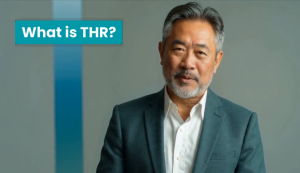Insight & Opinion || Philanthropic Terrorism

Around a dozen or more years ago at a conference in South Korea a security expert outlined the existential threats involved with the illicit tobacco trade. Criminal and terrorist syndicates have long been engaged in low risk, highly profitable cigarette smuggling with little fear of serious consequences as the penalties remain relatively light and enforcement is lax in most cases. The syndicates, which include terrorist organizations earn vast sums of money to fund their core interests and in the process corrupt government officials and institutions.
Cigarettes are not regarded by many officials as particularly problematic, especially among those who smoke, and bribing customs officers and others to expedite import etc. is relatively easy in many poorer countries. The problem is, once they are ensnared, officials are exposed to increased pressure to turn a blind eye to more dangerous shipments including drugs and armaments. As they are already entrapped, it’s not easy to say no.
This is ironically also the case with billionaire philanthropists and Big Pharma’s ‘donations’ to agencies such as WHO, government health departments, FDA’s, etc., and academia.
This type of funding by foreign entities is illegal in most countries. Unfortunately, because its ‘tobacco control’, conditional donations (accompanied by a script and set of instructions) are more likely to be accepted by government functionaries and some members of academia as they are regarded as ‘altruistic’ and ‘pragmatic’.
But this is the thin end of the wedge. There is no denying the potential for vested interests and politically driven billionaires to increase their influence through additional funding on other perhaps more contentious aspects of national policy development through additional funding.
As with the cigarette smuggling syndicates, once government agencies have been infiltrated and compromised by receiving illegal conditional funding designed to influence policy decisions, it’s hard for them to turn down additional funding covering other spheres of interest.
This is highly problematic. For cash-strapped developing nations, such activities present a clear and present threat to their autonomy and democratic principles, as well as the health and safety of their citizens, The situation is even more egregious when one realizes that the policies and rhetoric anti-Tobacco Harm Reduction propagandists espouse are so completely out of synch with the huge majority of research on the subject.
The vast preponderance of independent, peer-reviewed research shows alternative consumer nicotine products to be far safer than smoking. However, Health Departments, particularly in countries that are signatories to WHO’s Framework Convention of Tobacco Control (FCTC), follow WHO ‘guidance’ blindly, citing the same handful of flawed and controversial ‘studies’ and ‘research’, much of which has been withdrawn, disproved or thoroughly debunked by highly qualified, well-respected independent experts, including many former WHO executives, to justify their flawed positions.
In most countries, Health Departments have controlled what passes for a debate on consumer nicotine alternatives such as vapes, HNB, SNUS, etc., by spreading disinformation and inaccurate scare-mongering headlines based on scripted prohibitionist, moralistic dogma espoused by super-rich funders, not actual science.
When it comes to WHO’s rhetoric, there is much more than a reasonable doubt when it comes to assessing its factual content.
Clear evidence of conflicting claims, including significant debate among highly qualified experts as to the validity, integrity, truth and factual content of the ‘evidence’ WHO and Health Departments continue to propagate, is extremely damaging to the health prospects of over one billion smokers worldwide, together with their families, friend and colleagues. If this was a court case and not a regulatory discourse, it’s more than likely that the case would be thrown out due to the preponderance of highly contested evidence.
The current prohibitionist mindset, repressive regulatory postures and over-arching influence enjoyed by the tiny minority of well-funded, highly vocal anti-THR proponents are most certainly not based on unimpeachable evidence or fact and are usually tied to illicit or improper funding by unaccountable foreign Philanthropies seeking to avoid taxes while growing their influence and peddling their moralistic agendas. Also in the mix are vested commercial interests, particularly Big Pharma, who have long been protecting their Nicotine Replacement Therapy medications, patches, sprays and gums, etc, from the disruptive consumer-driven less harmful product segment that includes vaping, HNB and SNUS by throwing obscene amounts of money at WHO, governments and health departments in what has so far been a successful attempt to destroy the threat these products create to their NRT portfolios – not mention the treatments required for smoking-related illnesses that most if not all smokers are sure to encounter at various times.
Legislators need to understand that what they are being told by often compromised ‘Health Professionals’ are simply opinions, not statements of fact.
By all means, listen to Health Departments, but by no means believe that everything they are telling you is anything more than highly contested opinions supported by a handful of mostly flawed ‘research’ conducted by a small cadre of obscenely well-funded old-school career Tobacco Control advocates with a clear bias towards prohibition, unfounded paranoia, moral dogma and flawed science presented in a handful of controversial cherry-picked ‘research’ papers representing a tiny minority of the thousands of peer-reviewed scientific research papers that clearly show alternative consumer nicotine products to be far safer than smoking and an effective and permanent off-ramp for millions of former smokers out of deadly combustible tobacco to life-saving alternatives.
Other government stakeholders, including Departments of Trade and Industry, Excise, Revenue, Tourism, etc, also need to be involved in the regulatory processes.
Consumers – voters – are the principal losers or beneficiaries in the mix, and their voices must be heard and their concerns addressed as a priority.
Governments have a duty of care to ensure that consumers’ rights and choices are respected and accommodated by enacting risk-proportionate appropriate legislation ensuring products are manufactured according to established safety protocols and are not marketed or available to underage users.
Continuing to allow unaccountable foreign-funded evidence-free rhetoric to derail the safer alternative to deadly smoking is not only unhelpful and unproductive but also dangerous and undemocratic. If allowed to continue festering and corrupting sovereign government processes it will only ensure that millions of smokers who might otherwise have found a way out of their deadly habit will inevitably die prematurely.
Our health is not for sale. Our governments should not be for sale either.






